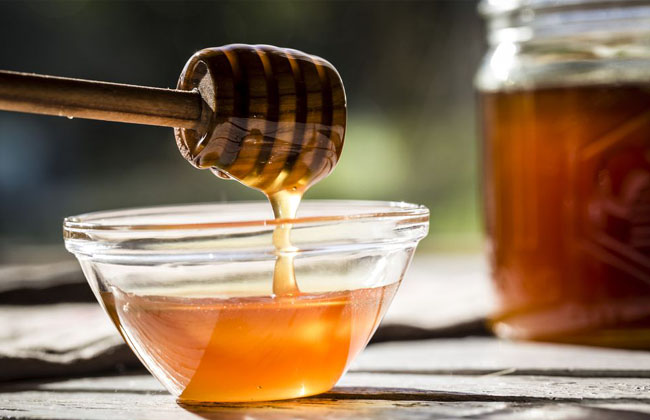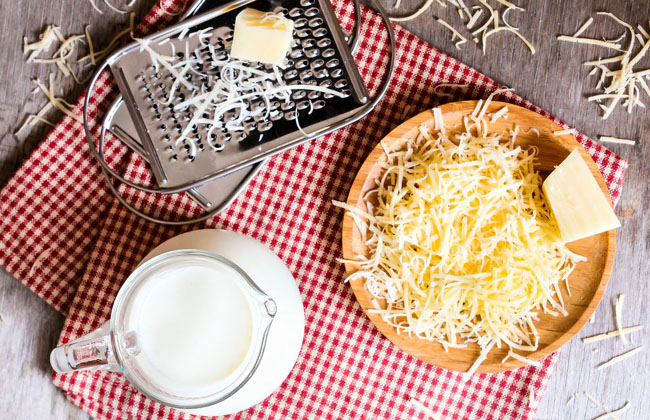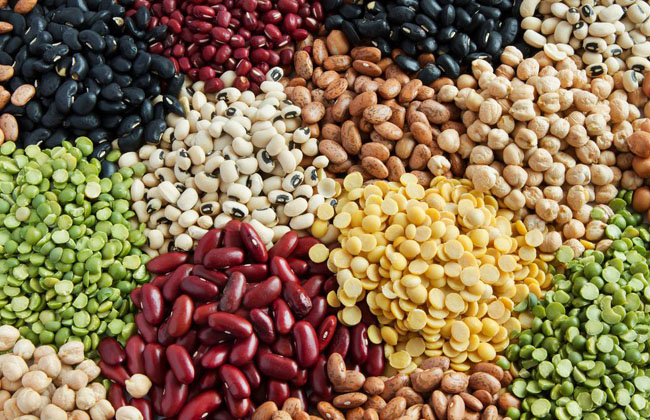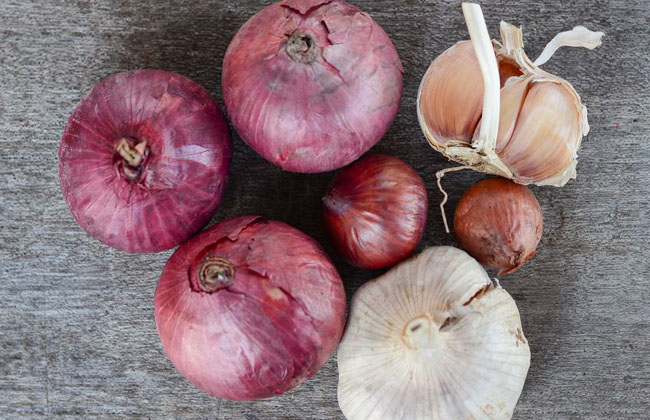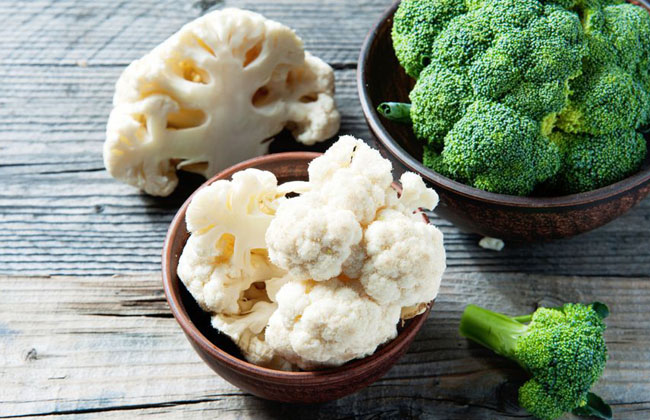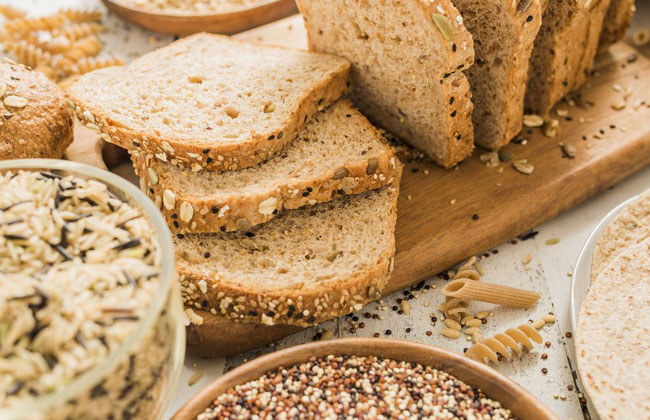Eating large quantities of foods and meals that mess up the digestive balance within our body and create stomach problems is the worst thing one can do to one’s health. The cramps tend to be awful, one suffers from severe bloating, and the constant urge to head over to be bathroom is an ordeal that can be prevented and avoided by making the right eating choices.
Individuals who suffer from a chronic condition that impairs the large intestine, known as the irritable bowel syndrome, must avoid several common and popular food items, such as pasta, onions and even certain nutrient-rich vegetables and fruits, which threaten to aggravate symptoms like stomach aches, diarrhea, bloating and constipation. Even though stress tends to be the most common culprit that triggers and aggravates the symptoms of IBS in certain individuals, but in most case, specific food items and food groups have been highlighted as the primary cause of this ailment.
There are accurate and specific tests to rule out the presence of IBS, but those who are diagnosed with this ailment often undergo a series of diagnostic testing that provides insight into the specific foods and food groups that may be causing or aggravating the onset of this condition.
Every patient suffers from a different impact from IBS, so if one patient can comfortably devour a certain food item, you might find yourself rolling over with pain after consuming the same food item. The best way to create a strong prevention and cure regime is to reconsider your dietary habits and every single item that you pick out from the grocery store. This brings into play the dynamics of trial and error, which requires you to pay more attention towards your diet, and work closely with a gastroenterologist, a certified nutritionist or other healthcare experts who can guide out about the foods you should and should not eat, along with overcoming the nutrient deficiencies that might occur in your diet.
We’ve compiled a list of 8 food items that you must eliminate from your diet when suffering from Irritable bowel syndrome (IBS). Here, take a look:
1. Sugar Alternatives & Sweeteners
Experts strictly recommend IBS patients against the consumption of sugar substitutes and sweeteners because they tend to pack up harmful effects. IBS symptoms can be drastically aggravated by the excessive consumption of sugary ingredients, such as high fructose corn syrup, honey, agave nectar and sugar alternatives, particularly sorbitol and xylitol that are commonly found in sugar-free mints and gums.
You see, all these sweeteners and sugar substitutes contain complex and heavy carbs that are very difficult to digest for the body, and they are also quickly fermented by the bacteria present within the gut, which aggravates and worsens the symptoms of IBS.
2. Ice Cream, Cheese & Milk
If you are suffering from IBS, it is highly advisable to avoid the consumption of certain types of yogurts, milk and soft cheese varieties, mostly because they pack up a hefty concentration of a kind of sugar, known as disaccharides, usually in the form of lactose. Research reveals that IBS and lactose intolerance tend to have the same symptoms, and it is best to consult a doctor to identify the right disease that you’re suffering with.
Basically, when the body is unable to generate sufficient amounts of an essential enzyme known as lactase, the body becomes lactose intolerant. If you are suffering from IBS, you are likely to discover an intolerance or sensitivity towards the consumption of dairy products.
Fortunately, there is a wide variety of lactose-free yogurts and milk in the market so you can still pick up some of your favourite products without worrying about their potential drawbacks.
Picking out hard cheese varieties, such as cheddar and parmesan, instead of soft cheeses is always a better idea because they tend to pack up much lesser amounts of lactose. However, keep in mind that eliminating dairy products from your diet will also bring about a marked reduction in your daily consumption of calcium and vitamin D, two very important nutrients. Thus, you should also pick out supplements and fortified foods to make up for their lack.
3. Beans & Legumes
Beans, legumes, chickpeas and lentils are immensely nutritious and healthy for the heart, and they are tremendously rich in plant-based protein, but if you’re suffering from IBS symptoms, it is essential for you to avoid them.
You see, beans and legumes are packed with galacto-oligosaccharides, which are fructans-like carbs that give the body a difficult time digesting them. Mostly, they tend to take a lot of time passing through the digestive tracts, which compels them to remain in your gut and start the process of fermentation instead of being digestive.
4. Onions & Garlic
Who doesn’t adore the aromatic and flavourful tinge of onions and garlic? We all do, but here’s some bad news for those suffering from the symptoms of IBS. Despite their flavour-enhancing benefits, onions and garlic can cause grave disturbances within your stomach and digestive system. This is mainly because onions and garlics fall amongst the group of difficultly-digested forms of carbohydrates, referred to as FODMAPs, which is an abbreviation for fermentable oligosaccharides, disaccharides, monosaccharides, and polyols.
The body finds it difficult to break down and digest the fructo-oligosaccharides, commonly known as fructans, present in onions and garlics, which makes them an unhealthy food item when you’re already suffering from digestive ailments.
Instead of being digested, these hard-to-digest carbohydrates end up resting inside the large intestine, where the naturally-occurring bacteria start fermenting them. This leads to the symptoms of aggravated stomach aches, excessive gas build-up and bloating.
5. Some Vegetables & Fruits
Even though it is very difficult to believe that fresh and nutrient-packed fruits and veggies are actually capable of causing severe digestive ailments despite their powerful disease-combatting properties, there are certain items of fresh produce that you must strictly avoid when suffering from the symptoms of IBS.
There are many fruits and vegetables, such as artichokes, watermelon, snap peas, broccoli, cherries, Brussels sprouts, mangos, nectarines, mushrooms, pears, apples and cauliflower, which pack up a rich concentration of certain compounds like monosaccharides, oligosaccharides, and polyols that disrupt the digestive system and the stomach.
6. Cereal, Pasta & Bread
Most products made with rye, barley and wheat, contain a protein, known as gluten, which tends to aggravate the symptoms of bloating, stomach ailments, constipation, and diarrhea, even amongst those who aren’t suffering from celiac disease. These products include baked treats, store-bought foods, granola bars, breads, pasta, cereals, grains, crackers and more.
A gluten sensitivity or intolerance cannot only aggravate your IBS symptoms but it can also trigger the onset of IBS. Patients who tend to develop IBS because of a gluten sensitivity often struggle with obtaining sufficient amounts of fiber through their diet. Therefore, it is highly recommended to focus on adding gluten-free grains, such as oats, quinoa, buckwheat, wild rice and millet to one’s daily diet.
However, just make sure you carefully scan the labels and ingredients on the oats you pick out because most popular varieties tend to be contaminated by wheat.
7. Packaged Food Items
It’s highly advisable to avoid eating all kinds of packaged and processed food items when suffering from the symptoms of IBS. If you truly want to understand the underlying causes that are triggering your digestive and stomach ailments, you must carefully examine the nutrition and ingredient labels of every single packaged food item you have added to your daily diet.
Some of the most common and popular convenience meals, frozen items, flavourings, soups, salad dressings, frozen foods, spice mixes, cereals and others contain FODMAPs in cleverly disguised forms that are given creative and seemingly healthy names.
For example, the word ‘dehydrated vegetables’ or ‘natural flavours’ are commonly added to spice mixes, which contain onion and garlic powder, and certain salad dressings contain ‘natural sweeteners’, which usually tend to be honey or agave syrup. It’s always best to find alternative and healthier products that have safe and transparent nutrient and ingredient lists so you are crystal clear about the ingredients and products that will enter your body upon consumption.
8. Coffee & Alcohol
Alcohol and java are undoubtedly the two most unique pleasures of fine living, but when suffering from IBS, it is best to avoid these two as they threaten to aggravate the symptoms of this already complex disease.
You see, all foods and beverages that contain caffeine tend to trigger colon movements, which tend to force you to run down to the bathroom, particularly right after you enjoy your morning cup of coffee or a heavy drink at night.
Similarly, caffeine is also found in sodas, fizzy drinks, cocoa powder, certain OTC pain relievers and even dark chocolate, so it’s best to avoid these too or at least, be mindful about their consumption.
Research reveals that alcoholic drinks and cocktails are also harmful for those suffering from the symptoms of IBS. A recent study attempted to examine the GI symptoms of women suffering from IBS, mainly stomach aches, diarrhea and nausea. The results revealed that after a bout of binge drinking, which consisted of four or more drinks at one time, they experienced an increase in their GI symptoms.
Experts reveal that binge drinking tends to cause serious damage to the lining of the GI tract, which tends to disrupt and damage the bowel movements, bringing about pain and abnormalities.
